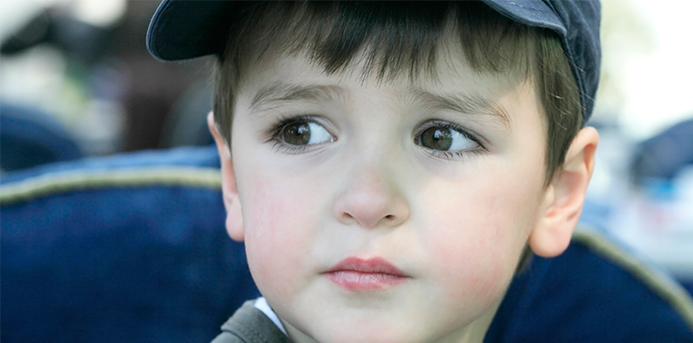It’s natural for children to feel worried at times – say, before a test or on the first day of school. Actually, worry can motivate them to excel. But, when it causes a barrage of irrational thoughts that interfere with everyday functioning—“What if mom drops me off at gymnastics and I get kidnapped?”—and provokes them to avoid experiences other children manage and enjoy, it becomes anxiety.
Sound familiar? If so, continue reading. Our experts provide tips to help your child manage excessive worry, now and always.
The dance of avoidance
“Anxiety is a product of nature and nurture,” says Dr. Dawn Huebner, author of “What to Do When You Worry Too Much: A Kids Guide to Overcoming Anxiety” (Magination Press, 2005). “Children can be hard-wired for anxiety (nature), and then have experiences that support anxious-avoidance (nurture), and set the pattern in concrete.”
For example, the mother who stays at gymnastics with her worried daughter is confirming to the child that there is something to fear. Like slowly entering a pool to acclimate to the water, Huebner says to wean your child from accommodations.
“Doing the thing that is worrying us is going to help us feel less anxious,” says Dr. Catherine Hauser of The Family Institute at Northwestern University. “It reteaches our bodies, ‘You can handle this. It’s okay.’ Nip it in the bud to prevent it from getting bigger and spreading to other areas.”
Watch for these symptoms:
- Increased irritability and tiredness—the body exhausts a lot of energy feeding the worry
- Stomachaches and headaches
- Change in appetite
- Repeatedly discussing the worry—This worsens it. Set a time limit for talking about it.
- Continually seeking reassurances
- Developing a random phobia
Find out what’s causing the anxiety
Ask your child to vocalize his or her concerns, says social worker Ali Swillinger of North Shore Pediatric Therapy in Highland Park. Comfort them by:
- Empathizing
- Debunking irrational thoughts
- Providing supportive, problem-solving ways to get through it
Hauser says to help your child recognize when he or she is feeling anxious. Does the worry repeatedly occupy their thoughts? If so, brainstorm ways they can distract themselves from it:
- Deep breathing exercises
- Laughing with a friend
- Thinking happy thoughts
- Writing down the worry and putting it away
“Anxiety is an uncomfortable feeling, nothing more,” Huebner says. “Like all feelings, it will pass.” If it becomes debilitating, she says to seek professional help. It’s treatable with cognitive-behavioral therapy.

